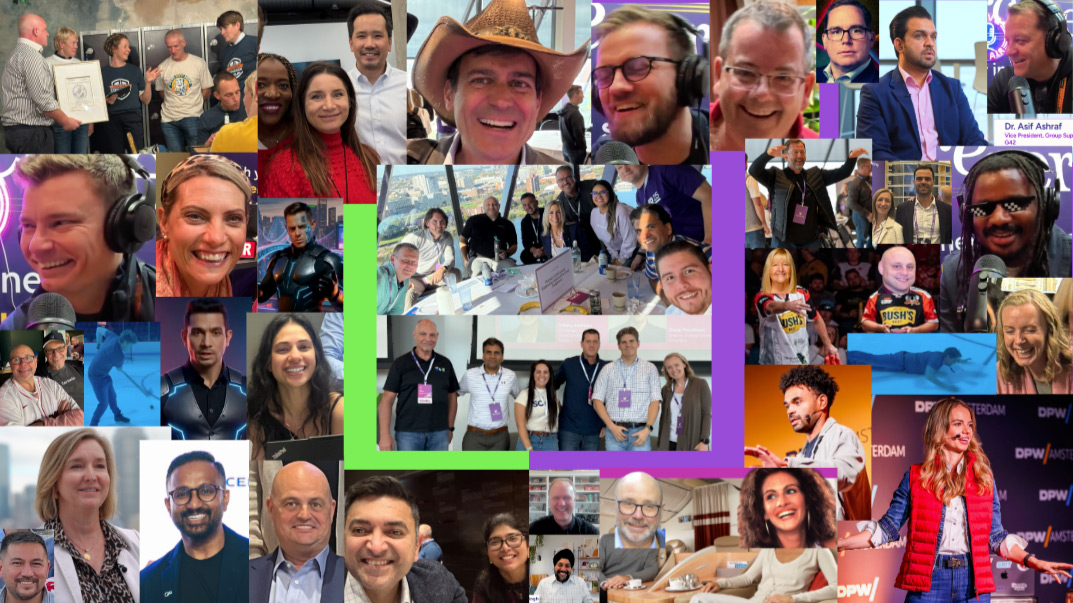Procurement leader spotlight with Jill Robbins
Next up in our Procurement Leader Spotlight blog series, we chatted with Jill Robbins to talk about her unique perspective on all things procurement, leadership, and the skills needed to succeed as a leading woman and expert in procurement, supply chain, and entrepreneurship.
Jill Robbins has over twenty years of experience in leadership roles across global supply management, strategic sourcing, operational excellence, and Lean Six Sigma in the pharmaceutical, industrial equipment, and animal health sectors. She is also the author of a children’s book and previous co-owner of two Sky Zone indoor trampoline parks that recently sold. Currently, Robbins is the Senior Director of Global Indirect Procurement at Elanco.
Q: Can you tell us about your background and how you got into procurement? We love asking this question because everyone always has a really unique answer!
A: I started my career at an airline before 9/11 happened and I was in customer service quality assurance. My role entailed going around to airports and physically interviewing customers on their experience on the particular airline. Then after 9/11, they cut over 3,000 jobs and eventually, the airline went out of business shortly thereafter. This was a life-defining and life-changing moment for me—being escorted to my car by armed security with a box in hand!
After searching for a job, within 2 months I went to work for a healthcare network in information technology—and this is where I really started to understand strategic sourcing. I was doing RFPs for medical information technology systems, and SRM with those suppliers and then from there. Within 9 months in this new role, the Information Technology department was outsourced to a consultant, Deloitte. I didn't necessarily want to work for a consulting firm at that point in my career.
Next, I went to Ingersoll Rand and worked in global strategic sourcing. That's where I was mentored, coached, and fell in love with procurement. I found that it's a natural gift that I have and truly enjoy—working with suppliers, negotiating, developing teams, and connecting fragmented aspects of an organization to optimize productivity. As I coach and mentor people, I tell them, ‘procurement can very much be investigative work,’ finding supplier consolidation, competitive bidding and category strategy opportunities. It is as much about the marketplace as it is about what's going on internally at a company, to bring best practices inside and optimize spending.
Q: Over the last 5-10 years, what are the most impactful changes you have seen in procurement?
A: I'd have to say, the use of artificial intelligence (AI), robotic process automation (RPA), and machine learning (ML). My peers have written pieces that it is very underutilized across procurement and supply chain and people can see it as a threat or as intimidating, but I see that it has been and will continue to be the most transformative value lever going forward to streamline formerly manual processes. It will eliminate or minimize the need for the tactical administrative procurement work that no one likes. It will deliver better data quality and spend management, while automating manufacturing processes. Category scorecards and SRM will have 360-degree feedback with suppliers to manage performance in two ways.
Q: Where do you see the procurement industry going over the next five years?
A: You can put as many systems in as you want, but you've got to get the basics right—that's key to setting future success.
Across procurement and supply chains, leveraging automation, artificial intelligence, and getting the blocking and tackling right is critically important. What I've seen as the biggest Achilles heel for businesses and procurement organizations is that the basic processes must be disciplined to drive accurate supplier, transactional, spend and performance data. Investing upfront in process design to ensure all procurement and supply chain processes are governed and do not allow data deviations that would potentially disrupt the continuity of supply or value chain reporting.
Q: What skills do you think the future leaders of procurement need to be successful? And what advice would you give them to get in a position like yourself?
A: I have a unique perspective because I've been in a lot of different roles. My career has not had one single area of focus. I'd say the most critical influence to my success, has been that I am an entrepreneur, outside of the corporate world. My husband and I have different businesses. I've written a children's book, and I can tell you, I have learned the most from my time building, developing and selling businesses with my husband.
In writing a children's book and having interactions with other business owners, I bring external best practices, a lean mindset and an ownership approach to procurement and any business in which I'm working. When you think and act like an owner, it takes the diligence, the productivity, the decision making to a whole new level. When you sign the front of the check vs. the back, every decision takes on a whole new level of impact on profitability.
Q: What is the one thing that most procurement professionals aren't doing well that they could start doing better immediately? Is there one major piece of advice or maybe one thing that you have seen over and over again that you think folks could start doing better immediately to improve their function?
A: I'd say understanding the data and how it connects to business priorities is key. When you understand where the money is going and then how those suppliers are performing, that is a magic formula to improve business performance. It really opens the door to future opportunities and innovation.
Don't be afraid to dig into the data and ask questions. Ask how are people using suppliers? How can we consolidate? How can we leverage competition? How can we track performance and supplier risk? Data is friendly, factual and it can then catapult performance, productivity, and maximize margins.





